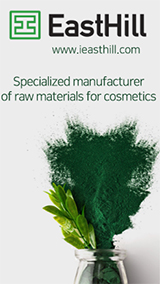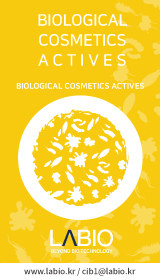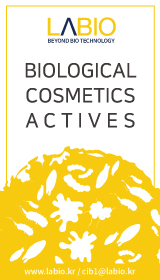Since June of last year, the Korea Cosmetics Association has formed a public-private consultative body for regulatory innovation with the participation of experts from the Ministry of Food and Drug Safety, related institutions, and academia, and as the first step for a new leap forward for K-beauty, global standardization and currentization of regulations related to the cosmetics industry carried out activities for
Through six months of consultative body activities, the details of the innovation targets were greatly changed under the premise of △ conversion to a global negative system for fostering innovative and creative brands △ introduction of the K-beauty global safety management system △ establishment of a global standard quality management system. derived
The basic requirement and the biggest challenge for such regulatory innovation is that the current cosmetics law must be 'completely revised' to the level of 'newly enacted'. This not only has to go through the process of proposing a revision (proposal) and passing it in the plenary session of the National Assembly, but also needs to leave open the possibility that the initially intended direction and purpose may change in the process.
Regardless of future schedules, Cosmorning reviews the regulatory innovation tasks and directions presented by the Cosmetics Association through discussions with the Ministry of Food and Drug Safety for each issue and publishes detailed plans for them in series. In the first, the contents of the introduction and operation plan of the 'Cosmetics Advertising Autonomous Dispute Mediation Organization' (tentative name) are posted twice above and below. <Editor's Note>

Necessity and background of the introduction of an autonomous advertising dispute resolution organization (tentative name)
From a macroscopic point of view, K-Beauty went through the COVID-19 pandemic in 2020 and 2021, and achieved the world's third place in export performance, but △ the rapid growth of a Chinese local brand called C-Beauty △ Japan and Europe Decreased global competitiveness of K-Beauty due to intensifying competition with global companies such as the US △ K-Beauty sales decline in the Chinese market and consequent withdrawal from the market are in a crisis situation.
In order for K-beauty to take a second leap along with the Korean Wave, which has recently begun to rise again, it is urgent to overhaul the system focusing on the creation of an innovative and creative ecosystem so that innovative technologies and product development that will lead the world cosmetics trend can be actively developed. In other words, it means a transition from a government-led management system to a private-led management system.
It is an undeniable fact that government-led management has played a large role in the development process of the cosmetics industry, but in the current situation where it has reached the third largest export volume in the world, △ regulations hinder the development of innovative products △ various screening and certification procedures Excessively delaying the release of new products △ Making it unclear who is responsible in the event of an accident related to cosmetics It is rather persuasive to point out that it exposes limitations in various fields, such as hindering prompt dispute resolution.
Among the industries managed by the Ministry of Food and Drug Safety, the cosmetics industry has a weak public interest and a small number of harmful cases, and the side effect symptoms are only at the level of skin trouble. This is an element that can be the basis for the argument that it is necessary to encourage free and creative sales activities of companies by minimizing restrictions on fundamental rights.
Therefore, it is sufficient to reach the judgment that the current cosmetics industry in Korea is the most suitable for conversion to the private sector among the industries under the jurisdiction of the Ministry of Food and Drug Safety.
The purpose of the introduction of the autonomous advertising dispute mediation body (tentative name) is to allow companies to resolve disputes between companies over advertisement expressions by themselves. The introduction of such a 'autonomous dispute mediation organization' is one way to transform the cosmetics industry from government-led to private-led.
In other words, the introduction of an autonomous advertising dispute mediation organization should be understood as one of the ways for Korea's cosmetics industry to move toward a private-led management system like the United States and Europe in order to proceed to the next stage of discussion.
Intensifying disputes between companies related to cosmetic advertisements
As the cosmetics industry grew rapidly, as of 2021, there were 4,428 cosmetic manufacturers and 22,716 responsible sellers. In particular, the number of responsible sales companies that outsource manufacturing to cosmetics manufacturers and distribute and sell finished cosmetics is explosively increasing.
The increase in cosmetics manufacturers and responsible sellers contributes to the vitalization of the cosmetics industry and employment market, while the increase in the number of these companies intensifies excessive competition among cosmetics companies in a limited market.
As a result, if a specific company launches a new product and advertises it on new media (SNS) including TV, the competitor company will ask whether the advertisement falls under unfair labeling or advertising prohibited by Article 13 of the Cosmetics Act, and if so, the corresponding product There are frequent cases of filing civil complaints asking for a sanction for suspension of sales or suspension of advertising for the relevant item.
Currently, it is estimated that the number of accusatory advertising complaints about cosmetics advertisements filed by civil petitioners through the National Newspaper or the local Food and Drug Administration (wireline) reaches about 10,000 to 12,000 annually.
Loss of autonomy and creativity in advertising expression… Decreased motivation to develop innovative products
It is pointed out that the increase in the number of complaints about high-profile advertisements results in shrinking the diversity and creativity of advertisement expression, which leads to the loss of companies' enthusiasm for research and development of innovative technologies.
Companies are not concentrating their efforts on effectively conveying information about products to consumers through creative advertisements, but fearing sanctions from the relevant administrative agency due to accusations of competitors, so there is a possibility of disputes or disputes even a little. You will not be able to express your advertising.
In the end, it is argued that only ads with uniformity at the level of reusing the advertising expressions used in the past will remain in the market.
If the current situation, in which disputes related to cosmetic advertisements are getting more and more severe, is neglected, △ domestic cosmetics companies lose the ability to express their opinions effectively △ cosmetics advertisements cannot effectively convey information about products to consumers △ consumer memory It is at this point that the concern that only the 'advertising model' of the product will remain, not the product, is persuasive.
Ultimately, it only increases the possibility of reducing the competitiveness of K-beauty in the global market due to an environment that discourages companies from investing in research and development for innovative products and focuses only on mass production of similar Me Too products.
Overseas system: Need to build an innovation and creative ecosystem through private self-regulation and purification functions
In the United States and Europe, a private dispute mediation system is operated for advertisement disputes between rival companies such as cosmetics, and government intervention is minimized while private sector self-adjustment promotes corporate innovation and fair competition.
Representative examples are the dispute mediation programs operated by the BBB National Programs (NAD) in the US and the Advertising Standards Authority (ASA) in the UK.
It can be understood as a system with a 'mediation' function in which a third party in a neutral position helps the disputing parties resolve their dispute in the private sector through negotiations with the consent of the disputing parties.
Through this, it is evaluated that the industry is building consumer trust through self-regulation and purification while creating an industrial ecosystem that promotes research and development of innovative and original technologies without diminishing the autonomy and creativity of corporate advertising expression. <Continued>





